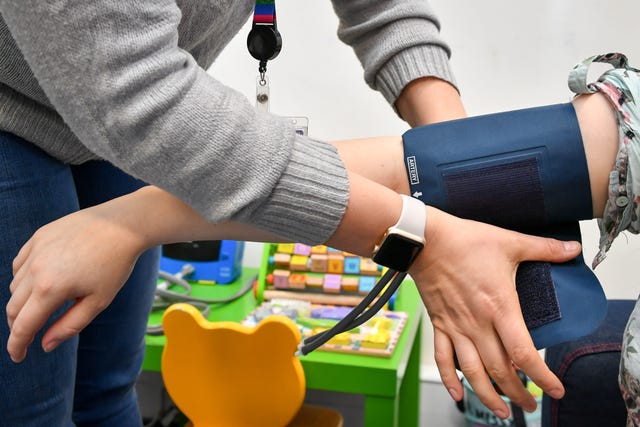Polypill ‘better at lowering heart disease risk than multiple medicines’
The medication could offer key advantages for patients who face barriers to accessing medical care, researchers say.

A “polypill” packed with four different medications to treat high blood pressure and high cholesterol is more effective at lowering the risk of heart disease than taking the medicines separately, according to a new study.
Research funded by the American Heart Association also found that patients – mainly those with low socioeconomic status – were likely to stick to their medication routine if it involved taking a single pill.
The team, based in the US, examined 303 patients at a community health centre in Alabama, where 96% of the participants were black, 60% were women, and the average age was 56.
Three out of four participants were reported to earn less than 15,000 dollars (£11,000) a year.
Half of the patients were given a daily polypill made up of four low-dose medications containing atorvastatin (10mg) – to treat cholesterol, along with amlodipine (2.5 mg), losartan (25 mg) and hydrochlorothiazide (12.5 mg) – to reduce high blood pressure.
The rest of the participants received their usual medical care and medications.
The patients underwent medical exams where their blood pressure and blood cholesterol levels were measured at the start of the study, with follow-up tests at two months and 12 months.
Those taking the polypill recorded higher reductions in systolic blood pressure – the amount of pressure in arteries during the contraction of heart muscle – compared with those in the usual care group.
For a normal reading, the blood pressure needs to show a top number (systolic pressure) between 90 and less than 120 and a bottom number (diastolic pressure) between 60 and less than 80. Readings are expressed in millimetres of mercury (mm Hg).
The systolic blood pressure in the polypill group fell an average 9mm Hg in one year, compared with 2mm Hg in the care group.

Those in the polypill group also saw a drop in their LDL (low-density lipoproteins) cholesterol – also known as “bad” cholesterol because it causes fatty buildups in arteries – compared with participants in the care group.
Cholesterol levels in the US are measured in milligrams (mg) of cholesterol per decilitre (dL) of blood.
In the polypill group, LDL cholesterol fell an average of 15mg per decilitre compared with 4mg per decilitre in the usual care group.
These results translate to about a 25% reduction in the risk of experiencing a cardiovascular event such as a heart attack, according to study author Daniel Munoz, assistant professor of cardiology at Vanderbilt University Medical Center in Nashville, Tennessee.
He said 86% of patients in the polypill group continued to take their medication over the study period, compared with past studies that found fewer than half of patients were still on their prescribed blood pressure medicines at one year.
Mr Munoz said: “When it comes to preventing cardiovascular disease, simple strategies like the polypill may offer key advantages for patients who face barriers to accessing medical care.”
He said underserved patients at community health centres tend to be understudied in clinical trials.
“We need to better understand what works and what doesn’t in these settings so we can improve outcomes for people who may be the most vulnerable,” he added.





